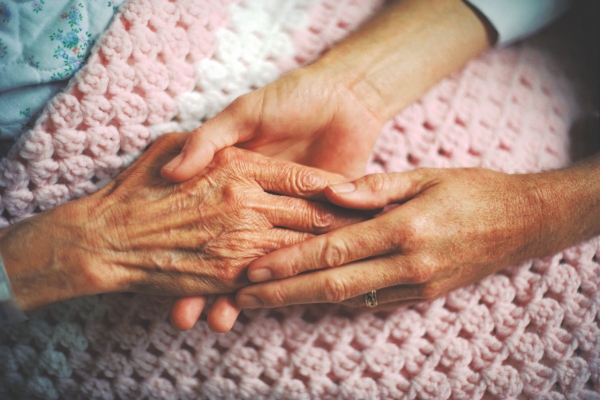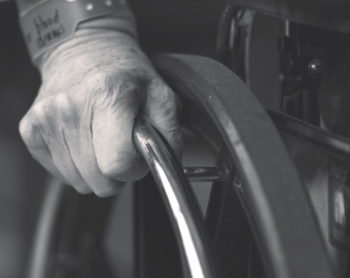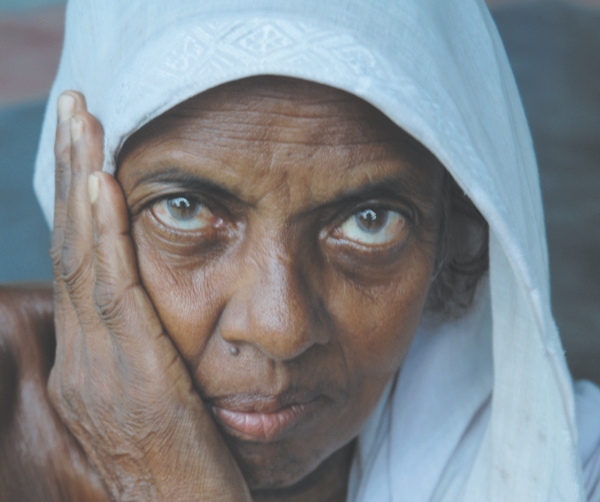| Home - Back Issues - The Team - Contact Us |
 |
| Volume 11 |Issue 11| March 16, 2012 | |
|
|
Health
Remembering the Forgotten Soraya Auer For as long as I can remember, Nehal and Afroz have been an exceptional couple. They are cultured and intelligent individuals with strong ties to their work, their passions, and their friends and family. After decades of devoted marriage to one another, they are facing their newest challenge together, as Afroz is suffering from Alzheimer's disease and Nehal is her primary caregiver. “You have to be a strong person and fortunately I am. I don't allow people to come and say 'it's so sad,'” says Nehal, who is in his early sixties. “This is something you just learn to live with.” Alzheimer's disease is the most common form of dementia, a syndrome that causes the ongoing decline of the brain and its abilities, and it starts with subtle symptoms such as short-term memory loss. There is no cure for the disease, which is degenerative, and the sufferer relies heavily on others for assistance until their death. This places a great burden on the main caregiver, who is often the spouse or child of the sufferer, to maintain a quality of life for them. “I never took her forgetfulness as part of the disease, I just didn't understand. I used to be quite upset with her and think she was lying to me when she would say she didn't know a simple thing,” remembers Nehal. “It was my daughters who told me they thought there was a problem, and now that I look back, I may have done an injustice to her by not realising that she was forgetting, and not lying.”
When Afroz went to see a psychiatrist at the request of her daughters, she believed she didn't have a problem and the fact she was forgetting things was not because of a loss of memory but a lack of attention. “The big problem is when someone who is fairly intelligent tries to hide the problem. Someone with high levels of intelligence can be quite adept at making excuses as to why they're forgetting things or make themselves reminder notes,” explains Dr Omar Rahman, a psychiatrist. “Early on, there's quite a bit of denial and saying you're fine because the reality is scary. The person will realise they're forgetting things and you wouldn't want to accept it,” says Dr Rahman. “When people are forgetting things, it's real – the myth that with age people forget things isn't true – there's nothing natural about it.” He insists that there is no reason for a 60-year-old to remember any less than a 30-year-old and that the only reason why an 80-year-old may be forgetting things is because by that stage, they might have a form of dementia. Overlooked or misunderstood symptoms are common in delaying the prognosis of Alzheimer's disease. Suraya Khan says her husband Sikander, who died in 1999, would be tired all the time. “I didn't know what Alzheimer's was or realise he had it,” she remembers. “He was not a very friendly man but I noticed that when guests would come, he would avoid people by going into his room, locking the door and sleeping.” He fainted a few times while travelling and would always want to rest. “Once we went to pick up our daughter at the airport and she'd just had a baby,” recalls Suraya. “He saw Yasmin and asked me 'whose baby is she carrying?' I said 'her baby!' and he responded 'since when has she had a baby, why didn't you tell me?' And of course, I had told him.” Afroz's condition has deteriorated to a point where she is no longer able to walk, tell when she feels pain or go to the toilet on her own. She is in good health physically but because her brain is no longer telling her body what to do, she has become very dependent on Nehal's help. He says, “She sees me as her support and I can see, when she thinks she has a problem, she looks at me to see how I react, so my presence gives her confidence. She will take commands from me because she's quite used to it, but if someone else asks her to do it, she will not do it because it's not what she's habituated to.” Nehal believes that the disease has a profound effect on primary caregivers as the strain can be so great that you can become a different person. He explains, “When the brain isn't telling or helping her to do something, it is very difficult for a carer to understand or know how to react. Even though I was so close to her, I recall how unfair I was to her. I used to get angry, unhappy and unbelievable emotions because I wanted her to do things, not knowing she is unable to do it. It came from a love but I really end up being negative by insisting. For the caregiver, it becomes an impossible task.” Because the disease is progressive, families often don't expect the changes that come. “People have to know the truth or else they will have a big shock when their expectations are not met,” says Dr Rahman, who trained at Harvard Medical School. “A rule of thumb is that you probably get a few good years but by the time you hit six or seven, you may need extensive help.” He also believes there is a huge burden placed on the primary caregiver and strongly recommends they seek counselling from the very beginning. “They also need a break,” recommends Dr Rahman. “There is a lot of guilt involved with giving care. If you burn out, you're not going to be of any help to your partner so you really need to be aware of how important it is to take time out. Whether they want to go for a walk, watch a movie or see friends, they can feel very guilty about leaving their partner and society needs to be sensitive about this and help caregivers to feel that it is okay.” This is where society needs to set up. While there is no stigma attached to the disease, and plenty of sympathy for sufferers and their families, not enough people realise how important it is for a caregiver to have people to care for and support them. Dr Rahman believes caring for someone requires a team involving both family and professionals, as families are becoming nuclear and are not always in the same place. “Institutionally we're going to have to develop, whether we like it or not, long-term care solutions, and this is something urban middle class Bangladeshis are slowly realising,” says the psychiatrist.
Suraya, who is slight in build and height, says she could not have looked after her husband without the help of four men in her household. “I would feed him one meal for hours because he had to eat liquids in small portions slowly, but he was so heavy that I could not shift him onto the bed.” Nehal says he did reach a low point about a year ago and now allows others to help with Afroz's physical care. “I'm happy being with her and my main staying power is that I think she could be much worse than this. I know she will start breaking down if I give up. One of my main jobs is to be a joker, I dance in front of her and act like a clown. She giggles and smiles and that gives me so much pleasure, but if someone saw me, they'd think I'd gone crazy myself! These are all survival techniques,” he says. He sums up what he wants for Afroz quite nicely, “What is important is that everyone around her helps her stay in the real world and maintain a quality of life. That reality has to be understood, accepted and helped.” For his own needs, he hopes society will change the way it deals with caregivers. “They need time to relax, and people to talk to. I came back to Bangladesh because I felt it was where most of my friends were but now I have the problem that I have no one to talk to. It's just me and Afroz and no one comes because Dhaka traffic is so bad.” You may not know Nehal or Suraya personally, but their stories are not uncommon. A loving husband or wife caring for an ailing spouse, a devoted son or daughter nursing a suffering parent – caregivers are out there helping their loved ones every day and reaching out to one you know, even if through a phone call, will give them respite from what can be a tough day. Nehal and Afroz remain an exceptional couple to me, as they still share and enjoy some of their common interests like music. “She remembers songs from beginning to end automatically so I spend lots of time with her, coaxing and tricking her into saying the lyrics. Frankly I enjoy it, mainly because I like and love her so much that whatever I do, if I see results, it's so rewarding.” Nehal adds, “It's not all dark and black.” Some names have been changed to protect the privacy of the individuals featured. Copyright
(R) thedailystar.net 2012 |


